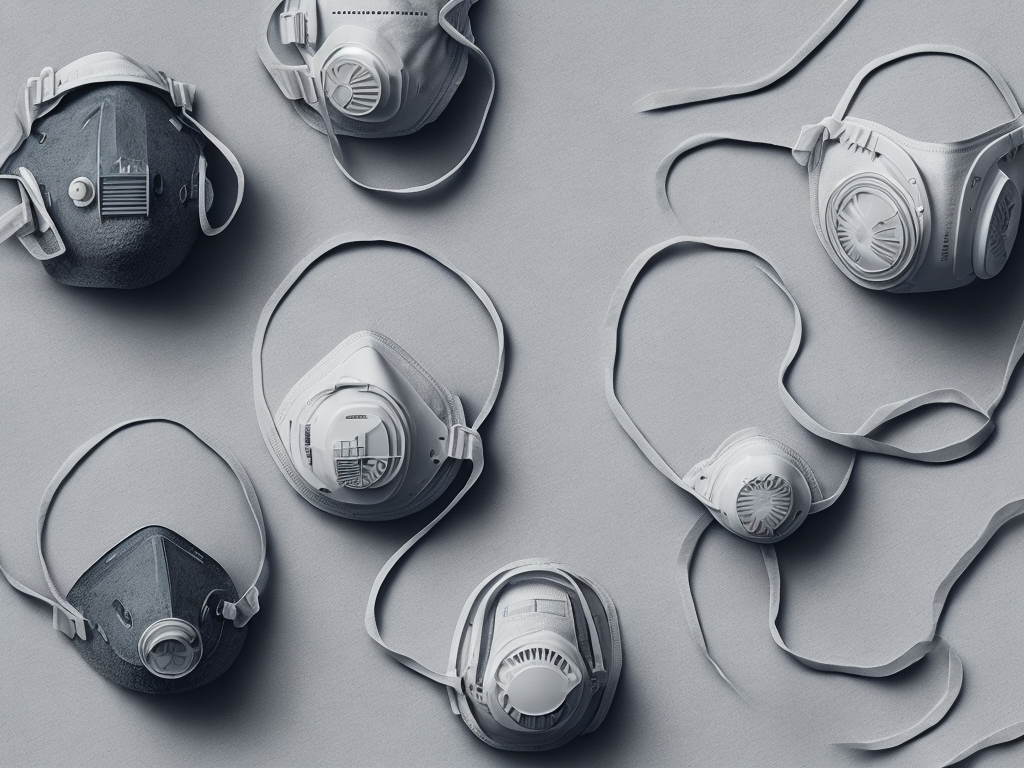
The outbreak of the coronavirus pandemic has prompted the need for personal protective equipment (PPE) such as face masks to prevent the spread of the virus. With the increasing demand for these masks, it is essential to understand the various types available in the market and their effectiveness. Two masks that have gained popularity in recent times are N95 and Kn95 masks.
Understanding the difference between these two types of masks could significantly help with selecting the appropriate PPE to prevent contracting or spreading the virus.
What is an N95 mask?
The N95 mask is a respiratory protective device designed to filter out airborne particles such as viruses, bacteria, and dust. The mask is designed to fit securely around the face, creating a seal to prevent particles from entering the user's respiratory system. It is named "N95" because it blocks out 95% of airborne particles that have a particle size of 0.3 micrometers or larger.
N95 masks are regulated by the National Institute for Occupational Safety and Health (NIOSH) in the US. These masks are commonly used in healthcare facilities and industries that expose workers to airborne hazards. The N95 mask is an essential tool used to protect healthcare workers from contracting and spreading diseases such as COVID-19.
What is a Kn95 mask?
The Kn95 mask is similar to the N95 mask in design and efficacy as it is a filtering facepiece respirator that blocks out 95% of airborne particles. The mask is created from a multi-layered fabric that filters out particles through its electrostatic properties. It creates a tight seal around the face, ensuring that the user breathes clean air.
The "Kn" in Kn95 masks stands for "Chinese criteria," as the mask was initially produced in China. It is not a US-based product, but it meets the protective standards and regulations outlined by the Chinese government.
What is the difference between N95 and Kn95 masks?
While both masks have a similar filtration ability, there are a few differences between N95 and Kn95 masks.
1. Design and shape
The design and shape of both masks differ slightly. The N95 mask is a half-face mask that covers the nose, chin, and mouth, while the Kn95 mask covers the nose and mouth, providing a tighter fit around the face. The Kn95 mask also has ear loops, which make it easier to put on and take off.
2. Certification
N95 masks are certified by NIOSH in the United States while Kn95 masks are certified by China's regulatory body.
3. Breathability
The N95 mask is designed to prevent the user from inhaling harmful particles and requires the user to breathe through the mask material, making it a bit harder to breathe and speak. The Kn95 mask has a somewhat lower inhalation and exhalation resistance, making it easier to wear.
4. Cost
The cost of both masks varies, with the N95 mask being more expensive than the Kn95 mask. The high cost of the N95 mask is partly due to its certification process and the shortage of the product in the market.
Which mask should you choose?
When deciding which mask to wear, you need to consider various factors such as the environment, the level of risk, and your budget. Both N95 and Kn95 masks offer similar levels of protection, but the N95 mask is considered the gold standard of respiratory protection. This is primarily because it has been subject to rigorous testing and has passed safety standards established in the US.
In conclusion, N95 and Kn95 masks are two types of respiratory protective equipment vital for preventing the spread and contracting of COVID-19. While they are similar in efficacy, the N95 mask is certified by NIOSH and considered the gold standard of respiratory protection. The Kn95 mask, on the other hand, is certified by the Chinese regulatory body and is designed similarly to the N95 mask. When selecting the appropriate PPE, it is essential to pay attention to the regulatory body that certified the mask and its level of filtration.
 Self-Instruct
Self-Instruct